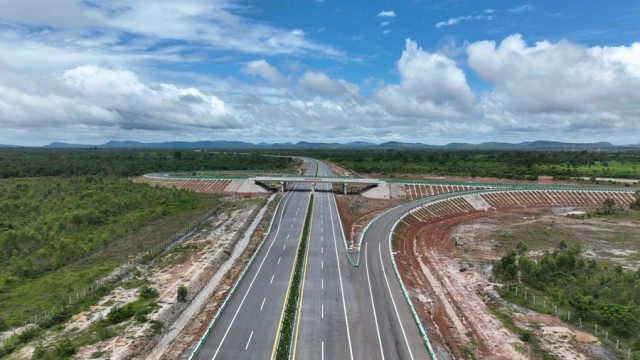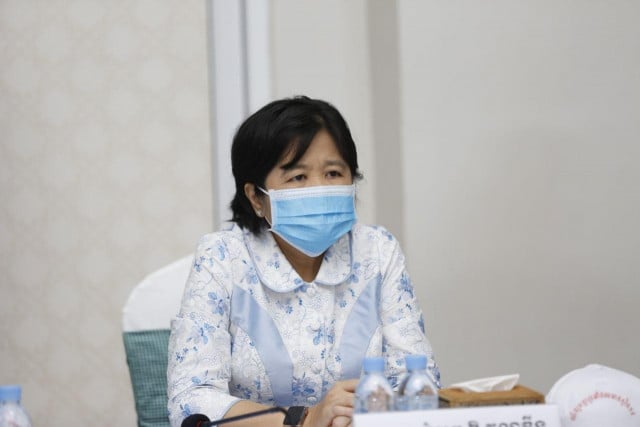Cambodian officials, experts hail China's contribution to global green development

- By Xinhua News Agency
- December 16, 2022 10:44 AM
PHNOM PENH -- Cambodian officials and experts have praised China for its low-carbon strategy, saying that it has been important in promoting global green development.
China has pledged to have CO2 emissions peak before 2030 and achieve carbon neutrality before 2060, marking the world's biggest cut in carbon emission intensity in the shortest time frame in history.
Cambodian government's chief spokesman Phay Siphan said China's low-carbon strategy was laudable, reflecting its top priority to the improvement of people's well-being around the world.
"It truly demonstrates China's commitment to promoting global carbon emission reduction and green development," he told Xinhua.
Siphan said he had noticed that major Chinese enterprises in Cambodia, such as the developers of the Phnom Penh-Sihanoukville Expressway, the Morodok Techo National Stadium and the hydropower plants, among others, have always paid particular attention to environmental protection and green development.
"These Chinese enterprises have been importantly contributing to promoting the green path of development in Cambodia," he said.
Cambodian Ministry of Environment's secretary of state and spokesman Neth Pheaktra highly valued Chinese firms in Cambodia, saying that they have not only actively engaged in Cambodia's economic development, but also had corporate social responsibilities and promoted carbon emission reduction.
He gave an example of the Chinese-built Lower Sesan II hydropower station in northern Stung Treng province, saying that the 400-megawatt plant had paid high attention to environmental protection by complying with all requirements in the project's Environmental Impact Assessment (EIA) paper.
According to the project's EIA paper, there are 34 kinds of long-distance migratory fish in the area, and in order to meet the needs of these migratory fish and maintain their diversity in the area, the firm built a fishway that has been put into use since the end of 2017.
The 2,900-meter-long fishway, built like a natural river to fit into the surrounding environment, served as the way that the fish come home.
Pheaktra said experts had taken water samples for tests, and the results indicated that the water quality of the Sesan River's upstream and downstream of the dam was good and has not changed due to the dam's presence.
"Cambodia has gained a lot of experience in environmental protection under its cooperation with China and has also received technical assistance and equipment from China, such as stations to monitor water and air quality, materials and technologies to participate in reducing greenhouse gas emissions as well as solar bulbs and electric motorcycles," he said.
Thong Mengdavid, a research fellow at the Phnom Penh-based Asian Vision Institute, said China is taking a great leap forward toward green and sustainable modernization through initiatives and action plans to curb carbon emissions before 2030 and become a carbon neutral country by 2060.
Gradually, China's eco-friendly growth or green-economy policy has seen wide use of renewable energy, he said.
Joseph Matthews, senior professor at the BELTEI International University in Phnom Penh, said China's state policy towards green development is very clear and that it is encouraging investment in renewable energy such as wind, solar and biogas.
"There is a huge investment in producing new energy vehicles (NEVs) that can ultimately change to combustion engine vehicles in the future," he said.















